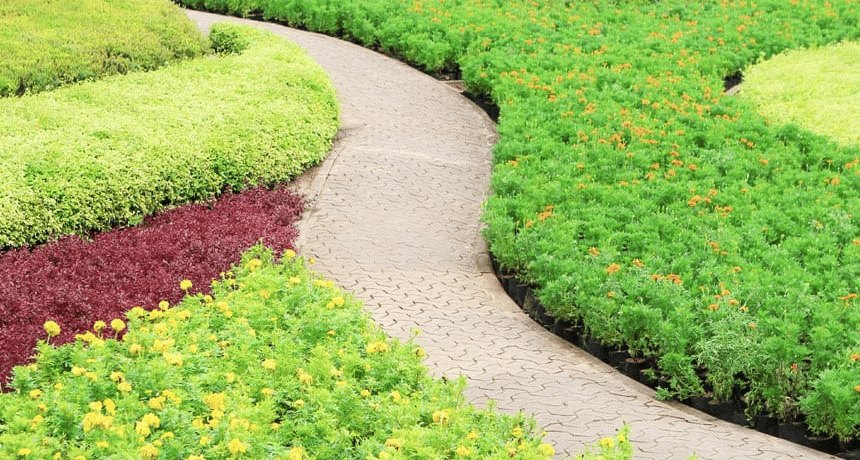From Lawn to Garden: Landscaping Tips for Massachusetts Homeowners
As the seasons change in Massachusetts, so do our outdoor spaces. Transitioning from a simple lawn to a flourishing garden can greatly enhance the aesthetic appeal and functionality of your property. Landscaping is not just about planting flowers and shrubs; it’s about creating a harmonious and sustainable outdoor living space that reflects your personal style. In this article, we’ll explore valuable tips for Massachusetts homeowners to transform their lawns into vibrant and captivating gardens.
Assess Your Space
Before you start digging and planting, take a close look at your yard. Consider the layout, sunlight exposure, soil type, and any existing features that could impact your landscaping plans. Massachusetts experiences varying climate conditions throughout the year, so it’s crucial to choose plants that can thrive in the local climate. The USDA Hardiness Zone Map is a valuable resource to determine the suitable plants for your area.
Design with Purpose
A well-designed garden is both visually appealing and functional. Decide how you want to use your outdoor space – do you want a relaxing oasis, a space for entertaining, or a wildlife-friendly habitat? Create focal points and pathways that guide the eye and create a sense of movement. Consider elements like patios, decks, pergolas, and water features to enhance the ambiance of your garden.
Choose Native Plants
Native plants are the backbone of a successful Massachusetts garden. They have evolved to thrive in the local environment, making them more resilient to pests, diseases, and weather fluctuations. Native plants also provide habitat for local wildlife, such as birds and butterflies. Some excellent native plant options for Massachusetts include Eastern Red Columbine, Black-Eyed Susan, and New England Aster.
Embrace Seasonal Diversity
Massachusetts experiences four distinct seasons, each offering its unique charm. Plan your garden to have year-round interest by incorporating plants that bloom and thrive during different seasons. Spring bulbs, summer perennials, fall foliage, and winter berries can create a dynamic and captivating landscape throughout the year.
Sustainable Landscaping Practices
Incorporate sustainable practices to reduce your garden’s environmental impact and maintenance requirements. Use mulch to retain soil moisture, suppress weeds, and improve soil health. Consider installing a rain barrel to collect rainwater for irrigation, reducing your reliance on municipal water sources. Implementing composting practices can also enrich your soil naturally, leading to healthier plant growth.
Hardscaping Elements
Hardscaping elements like pathways, retaining walls, and patios can add structure and functionality to your garden. Choose materials that complement your home’s architecture and blend well with the natural surroundings. Consider incorporating permeable pavers to minimize water runoff and prevent erosion.
Integrated Pest Management
Managing pests is a crucial aspect of gardening. Instead of resorting to harsh chemicals, practice integrated pest management (IPM) techniques. These include using natural predators, selecting pest-resistant plant varieties, and maintaining a healthy ecosystem that can naturally control pest populations.
Wildlife-Friendly Habitat
Create a haven for local wildlife by including features such as bird feeders, nesting boxes, and native plants that provide food and shelter. Massachusetts is home to a diverse range of birds and pollinators, and your garden can contribute to their well-being.
Low-Maintenance Options
Not all homeowners have ample time for intensive garden upkeep. If you’re seeking a low-maintenance landscape, choose plants that require minimal care, such as native grasses, succulents, and drought-tolerant plants. Incorporate ground covers to suppress weeds and reduce the need for frequent mowing.
Professional Guidance
Landscaping can be a rewarding but challenging endeavor, especially for those new to gardening. Consider seeking advice from professional landscapers or gardening clubs in your area. Their expertise can help you avoid common mistakes and guide you towards making the most of your outdoor space.
Transforming your Massachusetts lawn into a beautiful garden is an opportunity to connect with nature and enhance your property’s value. By carefully considering the local climate, native plants, sustainable practices, and your personal preferences, you can create a captivating outdoor space that flourishes throughout the seasons. Whether you’re a seasoned gardener or a beginner, these landscaping tips will guide you on your journey from a simple lawn to a vibrant and enchanting garden. So roll up your sleeves, grab your gardening tools, and get ready to turn your outdoor dreams into a reality!
If you are interested in learning more about our services, contact Lawn Care Plus today.
Call us at 617-592-9185 or request an estimate online.

